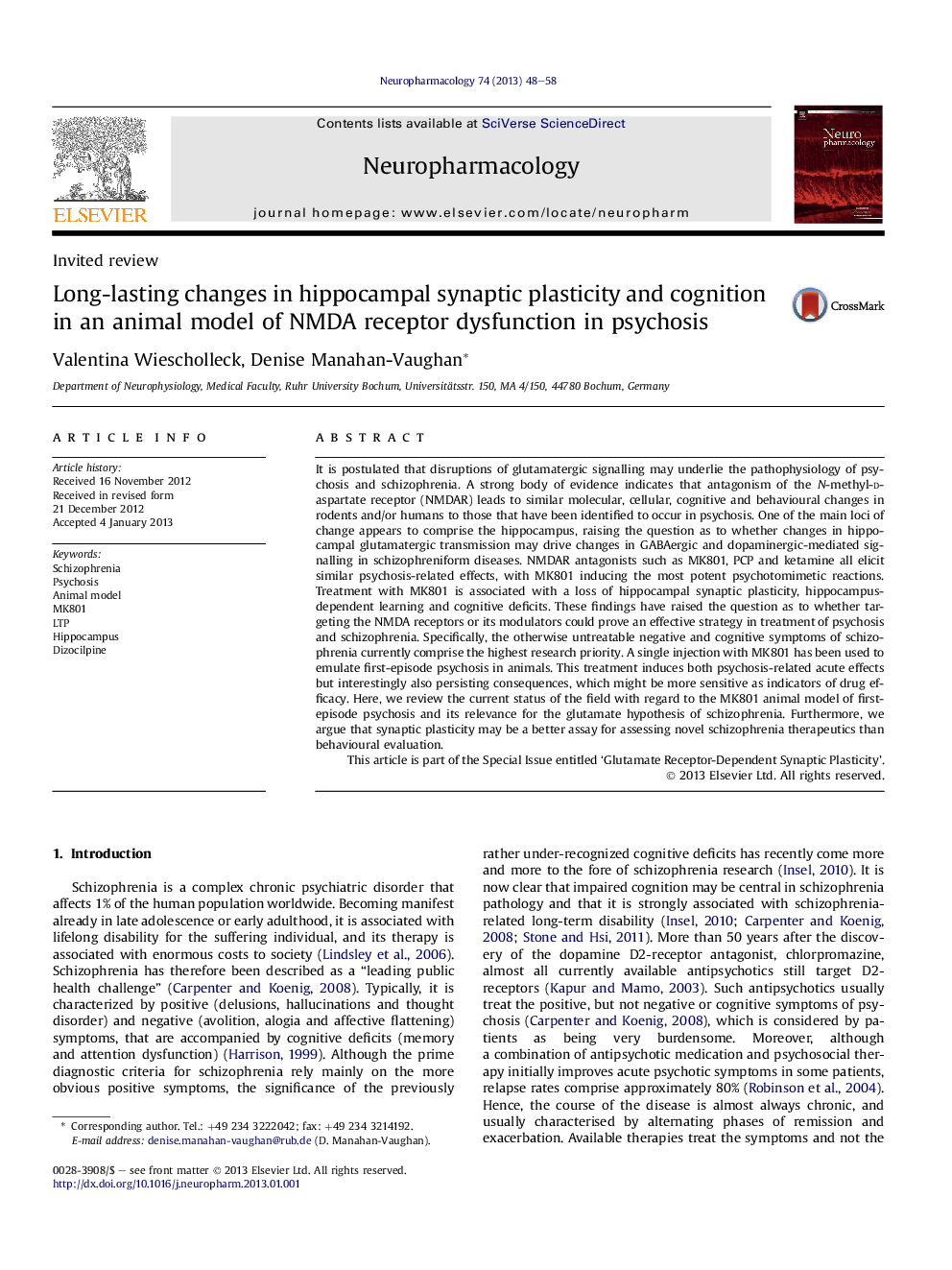| کد مقاله | کد نشریه | سال انتشار | مقاله انگلیسی | نسخه تمام متن |
|---|---|---|---|---|
| 5814825 | 1556639 | 2013 | 11 صفحه PDF | دانلود رایگان |

It is postulated that disruptions of glutamatergic signalling may underlie the pathophysiology of psychosis and schizophrenia. A strong body of evidence indicates that antagonism of the N-methyl-d-aspartate receptor (NMDAR) leads to similar molecular, cellular, cognitive and behavioural changes in rodents and/or humans to those that have been identified to occur in psychosis. One of the main loci of change appears to comprise the hippocampus, raising the question as to whether changes in hippocampal glutamatergic transmission may drive changes in GABAergic and dopaminergic-mediated signalling in schizophreniform diseases. NMDAR antagonists such as MK801, PCP and ketamine all elicit similar psychosis-related effects, with MK801 inducing the most potent psychotomimetic reactions. Treatment with MK801 is associated with a loss of hippocampal synaptic plasticity, hippocampus-dependent learning and cognitive deficits. These findings have raised the question as to whether targeting the NMDA receptors or its modulators could prove an effective strategy in treatment of psychosis and schizophrenia. Specifically, the otherwise untreatable negative and cognitive symptoms of schizophrenia currently comprise the highest research priority. A single injection with MK801 has been used to emulate first-episode psychosis in animals. This treatment induces both psychosis-related acute effects but interestingly also persisting consequences, which might be more sensitive as indicators of drug efficacy. Here, we review the current status of the field with regard to the MK801 animal model of first-episode psychosis and its relevance for the glutamate hypothesis of schizophrenia. Furthermore, we argue that synaptic plasticity may be a better assay for assessing novel schizophrenia therapeutics than behavioural evaluation.This article is part of the Special Issue entitled 'Glutamate Receptor-Dependent Synaptic Plasticity'.
⺠Disruptions of glutamatergic signalling may underlie psychosis and schizophrenia. ⺠The N-methyl-d-aspartate receptor (NMDAR) may be a key player. ⺠Irreversible antagonism of NMDARs emulates psychosis in animals and humans. ⺠This review addresses the state of the field. ⺠The MK801 animal model for the glutamate hypothesis of schizophrenia is presented.
Journal: Neuropharmacology - Volume 74, November 2013, Pages 48-58